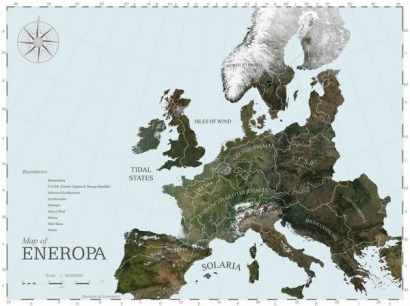
While the EC is confident that the 2020 targets will be met or even exceeded if Member States fully implement their national renewable energy action plans and if financing instruments are improved, it also highlights in its communiqué published today that more intra-community cooperation and a better integration of renewable energy into the single European market could lead to €10 billions savings each year.
"We have to invest much more in renewable energy and we need smart, cost-effective financing. If Member States work together and produce renewable energy where it costs less, companies and consumers and the tax payer will benefit from this," says Energy Commissioner, Günther Oettinger.
The EU is committed to reaching the objective of a 20% share of renewable energy by 2020 and to achieve such targets, today the Commission calls on Member States to implement the national action plans that Member States have presented in the beginning of 2010. “According to these plans, all Member States will meet their national binding targets by 2020,” says the EC, although it adds that: “Latest data show however, that in 2010, the indicative targets the Member States set themselves for the electricity and transport sector were missed by most Member States and for the EU overall.”
The EC also demands that annual capital investments in renewable energy should be doubled from €35 billion per year to €70 billion. “Within the new EU legislative framework, Member States will have to commit the necessary efforts to further invest and cooperate on developing renewable energy,” it says. “Further investment in renewables will require a substantial use of national support schemes. These support schemes, and other instruments used to finance renewable energy at EU or national level, ought to be as cost-effective as possible.”
Financial instruments need improving
The Communication shows that, while different financial instruments are used in all Member States to develop renewable energy – grants, loans, feed-in tariffs, certificate regimes etc., their management needs to be improved. Investors need greater coherence, clarity and certainty.
The EC also stresses the importance of cooperation between Member States. “The convergence of support schemes and market integration have to be reinforced to ensure that renewable energy sources and technologies become economically competitive as soon as possible. Commission analysis suggests that up to 10 billion Euros could be saved yearly with a more integrated approach,” says the Commission, which singles out three mechanisms which can already favour such cooperation: "Statistical transfers" whereby one Member State with a surplus of renewable energy can "sell" it statistically to another Member State, whose renewable energy sources may be more expensive; "Joint projects" whereby a new renewable energy project in one Member State can be co-financed by another Member State and the production shared statistically between the two; and "Joint support schemes" whereby two or more Member States agree to harmonise all or part of their support schemes.
The Commission will assess in 2014 the effective functioning of the cooperation mechanisms.
The Communication is the Commission's response to the reporting requirements set out in the Directive for Renewable Energy 2009/28/EC which had to be transposed into national law by December 5, 2010. With the Directive, the EU benefits from a much stronger regulatory framework than in the past, with legally binding national targets for the year 2020.
The 2001 Green Electricity Directive and the 2003 Biofuels Directive had set national indicative targets for 2010, both for electricity and transport. The Communication presented today also refers to these targets.
For additional information:
European Commission's Directorate-General for Energy and Transport
____________________________________________________________________________________________________

